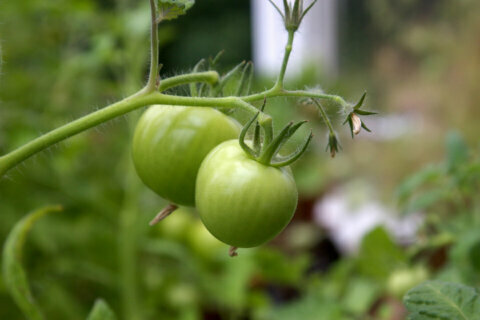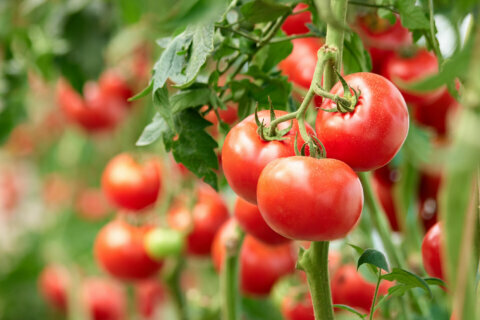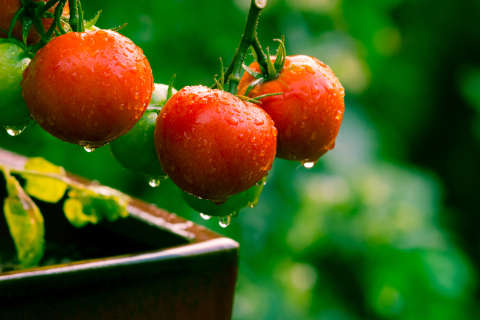Put down those pruners!
Yikes! Out of the deep freeze and into the month of May!
Please enjoy the warm weather this weekend, but please resist the temptation to do any pruning! Yes, winter pruning is the rule for big trees and such, but winter means real winter and not this false spring (at least that’s what John Wayne called it in “The Shootist.” and who am I to argue with The Duke?!).
Despite the offseason warm-up, plants should remain nicely dormant, which is what they need to do for a healthy 2020. Pruning them now could jolt them awake, snap them out of dormancy and subject them to severe winter injury.
Wait until spring and then prune spring bloomers, such as azaleas and forsythias, right after they are done flowering.
Prune summer bloomers, such as roses, hardy hibiscus and crepe myrtle, about two weeks after they resume active growing.
But don’t leave those leaves!
I don’t know about you, but I welcome this temporary warm-up. That deep freeze in the recent rearview mirror was tough on these old bones. And because the cold came so fast last fall, I have chores that went undone that will get done this weekend.
First on the list is the cleanup of the remaining fall leaves that are on top of my spring bulb beds. Left in place, these wet frozen leaves will make it hard for big bulbs, such as tulips and daffodils, to emerge properly — and they will just plain smother minor bulbs, such as snowdrops and glory-of-the-snow.
At the very least, I’ll rake them off into a big pile.
But if conditions are right, I’ll suck them up with a leaf blower on reverse and then return those shredded leaves to the beds. Shredded leaves make a great mulch; whole leaves make a great plant-killing tarp.
It’s seed catalog time!
J.L. Hudson: a real D.C. favorite
The offbeat, eclectic and Libertarian catalog (“UNcopyright 2020; all rights released”) from the J.L. Hudson company has been a big hit with D.C.-area growers since I introduced them to this delightful, annual publication some 20 years ago.
Although they specialize in rare and unusual seeds (“Kangaroo Apple” or “Galapagos Tomato,” anyone?), J.L. Hudson also carries a great selection of vegetables.
Their “Wild Garden” lettuce mix is one of my faves — a crazy combination of colorful leaf lettuces for cut-and-come-again baby lettuce harvests that I grow every season.
New this year is the “Jewel Box” lettuce mix — a combination of small, personal-sized heading lettuces, “with hearts of wine-red, rose, amber and butter yellow.” And both mixes are organically grown.
Newly-featured heirloom tomatoes include “Early Wonder” — compact plants that produce an early crop of tasty, deep pink tomatoes, and “Ukrainian Purple” — smooth purplish-red meaty and tasty plum-shaped fruits.
See it all or request a print catalog at J.L. Hudson.
Burpee LOVES tomatoes
When the new catalog from the venerable Burpee seed company arrived, I could practically smell their new hybrid tomato “Bodacious” that’s featured on the cover. Big, beautiful tomatoes on plants that stay a compact 5- to 6-feet-tall and produce all summer long. And, they’re blight-resistant.
Want to win the big tomato contest? Burpee’s “Steakhouse” hybrid produces fruits the size of a child’s head! And “Super Sauce” hybrid is a seedless paste tomato. whose love apples average a whopping 2 pounds apiece!
Also new this year is the “Real Deal” hybrid hot pepper — the shape and delicious flavor of a habanero, but with normal-level heat. (You can finally taste the amazing flavor of these incredible peppers without having a fire extinguisher handy.)
And it’s not all modern hybrids. The 144-year-old company also offers classic heirloom varieties, such as “Martha Washington” asparagus, “Blue Lake” bush beans and “Straight Eight” cukes. We’re gonna need a bigger garden!
Check it out or request a print catalog at Burpee.
Yet another reason to go organic
Want to protect your heart? As Michael Pollan has wisely noted, “Eat food; not too much; mostly plants.”
Of course, you should also get regular exercise, don’t smoke, and avoid insecticides.
That’s right; a startling article in the Dec. 30 issue of the Journal of the American Medical Association, or JAMA, found a staggering correlation between pesticide exposure and death from heart disease.
And the biggest association, according to the article, was not with agricultural workers, but with people who ate foods that had been sprayed with the most common pest-killer in use.
Read the full article at JAMA.
Mike McGrath was editor-in-chief of ORGANIC GARDENING magazine from 1990 through 1997. He has been the host of the nationally syndicated public radio show “You Bet Your Garden” since 1998 and WTOP Garden Editor since 1999. Send him your garden or pest control questions at MikeMcG@PTD.net.







